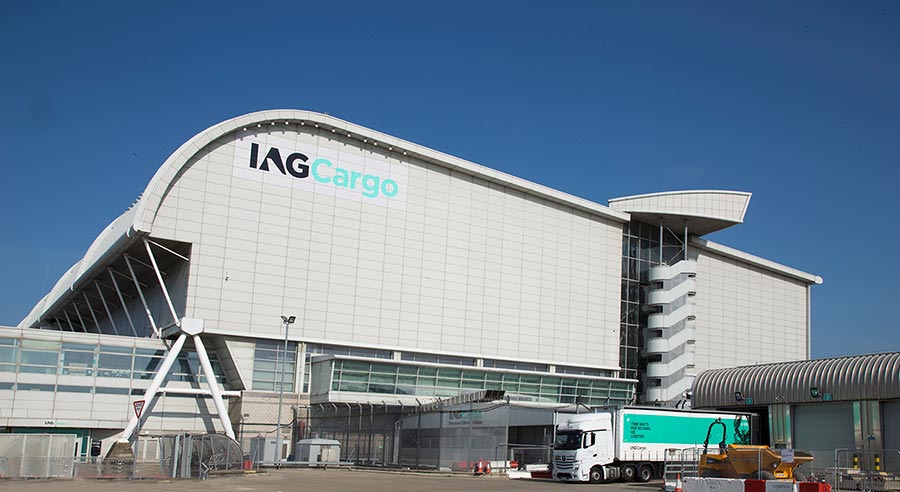Tackling talent shortages and retention challenges in air cargo
30 / 12 / 2021

IAG Cargo hub at London Heathrow Airport. Photo: IAG Cargo
Recognising the air cargo and logistics sector talent problem and tackling it is vital, writes Matthew Gardiner, head of marketing and external communication at IAG Cargo.
Labour shortages are headline news. Many industries are finding it harder than ever to secure the talent they desperately need. Vacancies in the UK are at 1.1m, the highest since records began.
For the air cargo and logistics sector, this is a long-standing issue that has affected the industry for several years. In 2019, IAG Cargo conducted a survey with 400 freight forwarders that saw 79% of respondents identifying the attraction and retention of talent as being a “very significant or significant challenge”.
Fast forward two years later and this is still the case – with a more recent survey from IAG Cargo showing only 6% of a nationally representative sample of over 1,500 UK adults would consider a career in air cargo.
On top of the challenge of attracting talent, many businesses are facing what is being called the turnover tsunami or the great resignation.
For everyone who works in cargo and logistics, it’s clear that this is a fantastic sector, critical to maintaining life as we know it – from facilitating global trade and delivering vital vaccines, to keeping e-commerce deliveries landing on doorsteps across the world.
So how can we boost recruitment and retention and what are the major challenges we must overcome?
In October 2021, IAG Cargo hosted a special addition of Cargo Live, focusing on this question, bringing together a panel of experts – Laura Nelson, managing director at Talent in Logistics, Peter Penseel, chief operating officer airfreight at CEVA Logistics, Ben Lyons, senior operating director at Michael Page Logistics and Tanya Joseph, managing director at Hill+Knowlton Strategies – to discuss.
Each participant had a unique perspective. However, there were certainly common themes. The talent is out there and increasingly mobile, actively looking for new experiences and opportunities.
What we need to do, as the cargo and logistics sector is to get front of mind – to reach the two thirds (66%) of respondents who in our recent survey said they had “never thought about” a career in our sector, and the further 17% who said they don’t know much about it.
For Nelson recruiting via social media is the solution, while Penseel flagged the importance of reaching out to students at schools and universities during their decision-making ages. Lyons emphasised the importance of communicating to the younger generation how important and rewarding a career in this sector can be.
Smarter recruitment required
Joseph noted that businesses must not only focus on attracting talent but how they manage to retain employees via a greater focus on purpose, as the market becomes increasing buoyant.
Supporting this, StandOut CV recently reported that 65% are looking for a job that provides a greater sense of purpose than their current role.
The last 20 months has sharply awakened our innate hunger for meaning and purpose. Self-reflection triggered by extended periods of working from home, left people questioning the value of their work and the sense of meaning it provides.
As an industry, if we are to attract the best and brightest talent, we need to be better at highlighting the importance of what we do.
The good news is, if candidates are looking for employment with a purpose, we as an industry provide that.
If those in the industry don’t do their jobs, lifesaving drugs wouldn’t do theirs. What we carry counts. What we clearly, collectively need to do as an industry is shout more about that purpose.
We need to get better at telling that story.
Training to ensure employees have the right skills and continually develop is essential, as is ensuring that people feel like they ‘belong’ in the organisation.
Efforts need to be directed towards making employees feel welcomed and valued, not only when they join but throughout their career at a company.
The panel also discussed remote working and the benefits it offers. Non-existent commute times, lower operational costs and a larger pool of job applicants.
Whilst I’m a huge advocate of it, virtual working has its own challenges. How do you build trust, a sense of belonging and meaningful connections without in-person interactions?
I think one of the key takeaways from the discussion is that as employers we need to have a flexible mindset. Flexibility more than ever will be fundamental to securing the best talent.
When advising on how the logistics sector can secure the best and brightest, it is key to highlight the need for seamless recruitment processes and their link to an organisation’s brand management.
It is important to remember that an organisation’s brand is experienced by a candidate for employment in the same way that a company’s service is experienced by a consumer.
There is a lot for us as an industry to consider and get started on, but it is a real must if we are to attract the talent that our fascinating industry requires now and in the years ahead.














